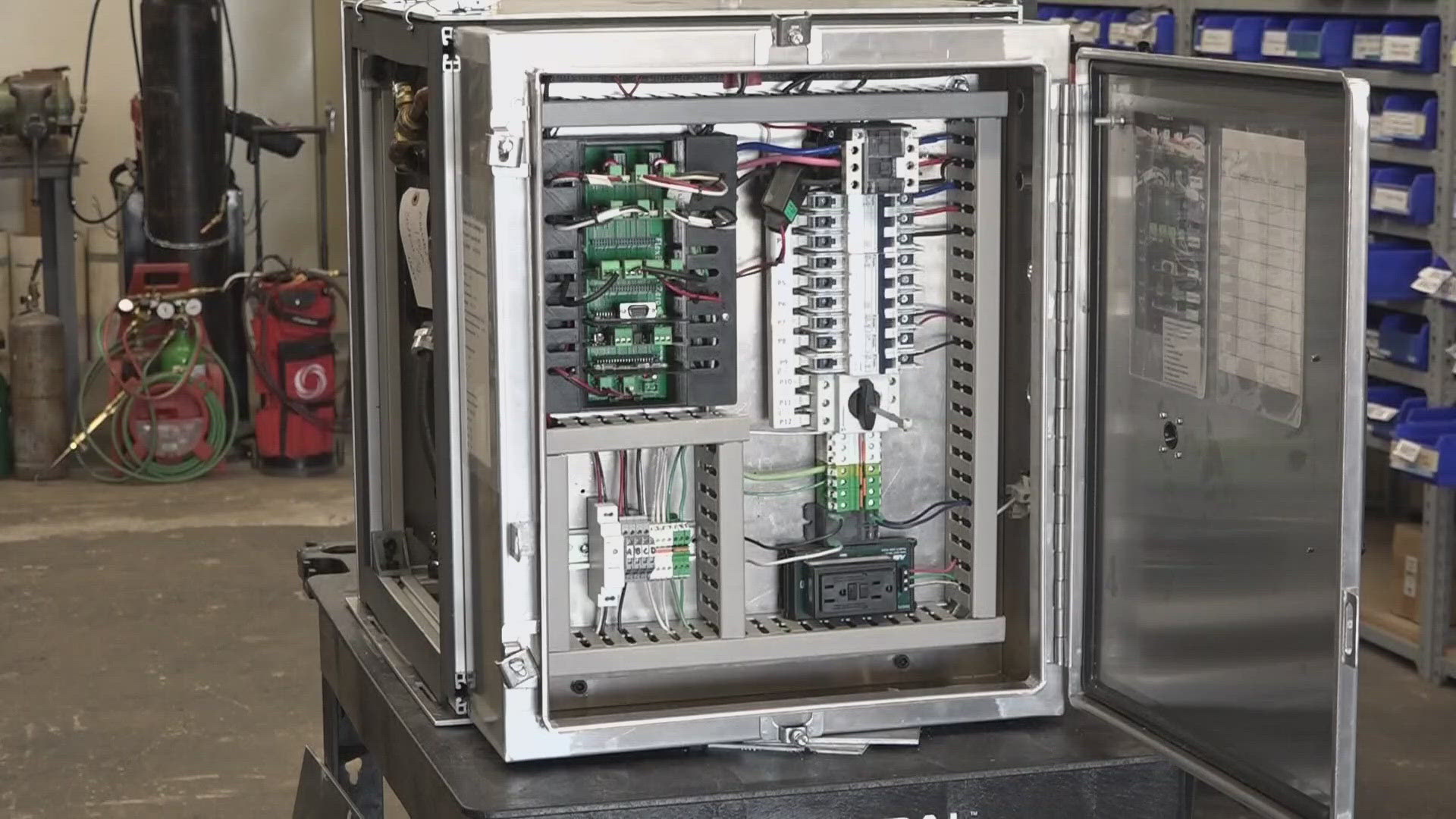BANGOR, Maine — A man from Bangor has created a new way to run grocery store refrigeration systems called the FlexCube, which he hopes will revolutionize the supermarket industry.
Inside the Bangor Innovation Center, inventor James LaBrecque has been developing the FlexCube for the past 12 years with the aim to transform grocery refrigeration.
“It's highly standardized and very simple to replace very large rooms of very complicated, very expensive, and very energy intensive equipment that runs in big supermarkets,” LaBrecque said.
The 2-foot cubes are an alternative to those very large, very expensive systems that have been used in grocery stores for decades. It could take as few as three cubes to support a small grocer or about a dozen for a large store's refrigeration system. It is also a source for heating and cooling store interiors.
“Reducing the maintenance, reducing design costs, installation costs and maintenance costs, and that will all reduce grocery costs,” LaBrecque said.
Most supermarkets use hydrofluorocarbons as refrigerants, which are greenhouse gases the U.S. Environmental Protection Agency is trying to phase out.
“One pound of refrigerant leaking out is equal to 4,000 pounds of Co2 released into the air,” LaBrecque said.
The FlexCube relies on A2Ls, refrigerants that are considered better for the environment than the common alternative.
There are five grocery stores using past models of the FlexCube, but the new A2L system will premiere at Hunter’s Shop ‘n Save in Wolfeboro, New Hampshire.
The store was destroyed in a fire last year, but it has been rebuilt and is reopening June 20.
LaBrecque said it will be the first entirely A2L store in the country.
“It's a huge cost-saver," Dan Craffey, owner of Hunter’s Shop ‘n Save said. "It's a real game changer for the supermarket industry."
Craffey said the FlexCube system is one-third of the price of a standard refrigeration system and will cut his electricity bill in half.
“A grocery store takes about as much energy as a hospital to run,” Peter Waning, the Hunter’s Shop ‘n Save project engineer, said. “This grocery store is probably going to take as much energy as a house.”
The supermarket will even have enough extra heat produced by the FlexCube system to heat the Walgreens next-door for free.
“Over the course of its life, it’s going to save a few millions,” LaBrecque said.
“It’s just amazing that this has been developed in the state of Maine, and it’s probably going to go worldwide very shortly,” Craffey said.
LaBrecque said they are hoping to start production of the FlexCube in January.

